
Herbert von Karajan
出生 : 1908-04-05, Salzburg, Austria
死亡 : 1989-07-16
略歴
Herbert von Karajan (born Heribert Ritter[a] von Karajan; 5 April 1908 – 16 July 1989) was an Austrian conductor. He was principal conductor of the Berlin Philharmonic for 34 years. During the Nazi era, he debuted at the Salzburg Festival, with the Vienna Philharmonic, the Berlin Philharmonic, and during the Second World War he conducted at the Berlin State Opera. Generally regarded as one of the greatest conductors of the 20th century, he was a controversial but dominant figure in European classical music from the mid-1950s until his death. Part of the reason for this was the large number of recordings he made and their prominence during his lifetime. By one estimate, he was the top-selling classical music recording artist of all time, having sold an estimated 200 million records.
The Karajans were of Macedonian Greek ancestry. Herbert's great-great-grandfather, Georg Karajan (Geórgios Karajánnis, Greek: Γεώργιος Καραγιάννης), was born in Kozani, in the Ottoman province of Rumelia (now in Greece), leaving for Vienna in 1767, and eventually Chemnitz, Electorate of Saxony.
His last name, like several other Ottoman-era ones, contains the Turkish language prefix "kara", which means "black".
He and his brother participated in the establishment of Saxony's cloth industry, and both were ennobled for their services by Frederick Augustus III on 1 June 1792, thus adding the prefix "von" to the family name. This usage disappeared with the abolition of Austrian nobility after World War I. The surname Karajánnis became Karajan. Although traditional biographers ascribed a Slovak and Serbian or simply a Slavic origin to his mother, Karajan's family from the maternal side, through his grandfather who was born in the village of Mojstrana, Duchy of Carniola (today in Slovenia), was Slovene. Aromanian heritage has also been claimed. Through the Slovene line, Karajan was related to the Slovenian-Austrian composer Hugo Wolf. He also seems to have known some Slovene.
Heribert Ritter von Karajan was born in Salzburg, Austria-Hungary, the second son of senior consultant Ernst von Karajan (1868–1951) and Marta (née Martha Kosmač; 1881–1954) (married 1905). He was a child prodigy at the piano. From 1916 to 1926, he studied at the Mozarteum in Salzburg with Franz Ledwinka (piano), Franz Zauer (harmony), and Bernhard Paumgartner (composition and chamber music). He was encouraged to concentrate on conducting by Paumgartner, who detected his exceptional promise in that regard. In 1926 Karajan graduated from the conservatory and continued his studies at the Vienna Academy, studying piano with Josef Hofmann (a teacher with the same name as the pianist) and conducting with Alexander Wunderer and Franz Schalk.
Karajan made his debut as a conductor in Salzburg on 22 January 1929. The performance got the attention of the general manager of the Stadttheater in Ulm and led to Karajan's first appointment as assistant Kapellmeister of the theater. His senior colleague in Ulm was Otto Schulmann. After Schulmann was forced to leave Germany in 1933 with the NSDAP takeover, Karajan was promoted to first Kapellmeister. ...
Source: Article "Herbert von Karajan" from Wikipedia in English, licensed under CC-BY-SA 3.0.

Orchestrator

Direttore d'orchestra
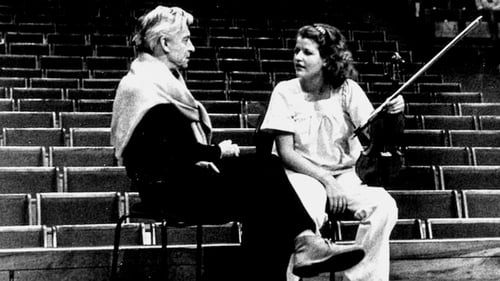
Self - Music Conductor (archive footage)
An account of the life and work of controversial German orchestra conductor Herbert von Karajan (1908-89), celebrated as one of the greatest musicians of the twentieth century.

Self (archive footage)
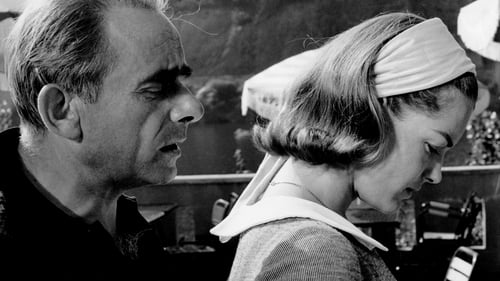
Self (archive footage)
Great filmmakers claim the artistic influence of French director Henri-Georges Clouzot (1907-1977), a master of suspense, with a unique vision of the world, who knew how to offer both great shows and subtle studies of characters. Beyond the myth of the tyrannical director, a contrasting portrait of a visionary, an agitator, an artist against the system.

Self (archive)

Director
Die Walküre (The Valkyrie), WWV 86B, is the second of the four music dramas that constitute Richard Wagner's Der Ring des Nibelungen, (English: The Ring of the Nibelung). It was performed, as a single opera, at the National Theatre Munich on 26 June 1870, and received its first performance as part of the Ring cycle at the Bayreuth Festspielhaus on 14 August 1876.

Conductor
“The whole world is a jest, man was born a great jester…” So goes the brilliant conclusion to Verdi’s Falstaff, an opera inspired by Shakespeare’s beloved comedy The Merry Wives of Windsor. The virtuosic score requires a particularly talented cast, not to mention a truly exceptional conductor. Herbert von Karajan perfectly fits the bill, and this performance featuring the Wiener Philharmoniker and an all-star group of singers is clearly worthy of Verdi’s powerful work, a masterpiece whose comic facade thinly veils the complex and sometimes even tragic characters’ struggles. Recorded in 1982. Re-released 2015.

Self (archive footage)
“What remains of Karajan?” asks the award-winning documentary film maker Eric Schulz. In his film Karajan – The Second Life, he explores the man and the musician – and especially his media legacy. We discover the conditions under which the technology enthusiast Karajan created his countless recordings and how these documents can help us to understand the phenomenon that is Karajan.

Self (archive footage)

Self (archive footage)
With a career that includes a 35-year tenure as composer of the Berlin Philharmonic and record sales topping 200 million, Herbert von Karajan is one of the most legendary figures in 20th-century classical music. Comprised of archival footage, performance highlights and interviews with the likes of Anne-Sophie Mutter, Christa Ludwig and Seiji Ozawa, this retrospective chronicles the life and times of the iconic Austrian maestro.
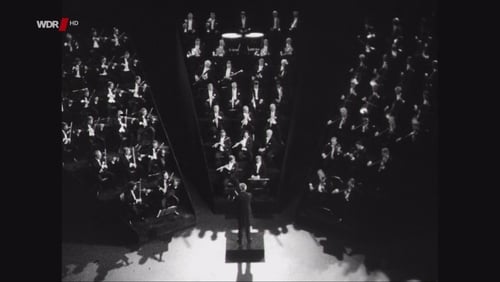
Self - Conductor

Music
Symphonien Nos. 1 - 9
Gundula Janowitz · Christa Ludwig · Jess Thomas · Walter Berry
Chor der Deutschen Oper Berlin
Berliner Philharmoniker
Herbert von Karajan
Directed by: Arne Arnbom, Herbert von Karajan
Hugo Niebeling, Hans Joachim Scholz

Self - Conductor
Symphonien Nos. 1 - 9
Gundula Janowitz · Christa Ludwig · Jess Thomas · Walter Berry
Chor der Deutschen Oper Berlin
Berliner Philharmoniker
Herbert von Karajan
Directed by: Arne Arnbom, Herbert von Karajan
Hugo Niebeling, Hans Joachim Scholz
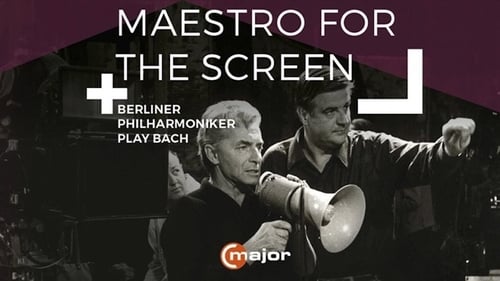
Self (archival footage)
Documentary on conductor Herbert van Karajan, focusing on his early adoption of audio and video recording technology and his impetus to make use of it to preserve his musical legacy for future generations.
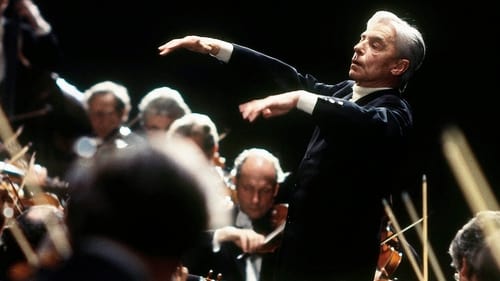
Director

Self - Conductor

Director
The Symphonies were recorded live with a special recording concept by Herbert von Karajan, and he did not only direct the filming, but also closely followed the editing and mastering of the symphonies. Karajans mid-1970s Tchaikovsky interpret

Self - Conductor
The Symphonies were recorded live with a special recording concept by Herbert von Karajan, and he did not only direct the filming, but also closely followed the editing and mastering of the symphonies. Karajans mid-1970s Tchaikovsky interpret

Self - Conductor
Released as a memorial for the great Russian cellist Mstislav Rostropovich, who passed away on 27 April 2007, this DVD contains one bonafide cello concerto, the Schumann Cello Concerto in A minor, and two tone poems with prominent cello parts, Ernest Bloch's Schelomo and Richard Strauss' Don Quixote. Rostropovich mastered the Schumann in several famous recordings. Here, conducted by Leonard Bernstein, he provides a splendid performance. Featuring his trademark powerful technique, smooth legato and crisp vibrato, the Romantic roots of the concerto are never hidden for long, despite the relatively cool playing of the Orchestre National de France.

Self
Karajan - Bruckner - Symphonies No. 8 & 9

Self - Conductor
This set was recorded in the late 1960s to early 1970s. Herbert von Karajan is widely acknowledged to be one of the finest conductors of the 20th century, and around 1970 he was at his peak.

Self - Conductor
Herbert von Karajan directs the Berlin Philharmonic in an Italiannate take of Beethoven's Fourth Symphony and an assured rendering of the Fifth, while the "Pastoral" Symphony, conceived and directed by Hugo Niebeling in 1967, is a revolutionary mix of styles - Fantasia meets Expressionism meets film noir.

Self - Conductor

Self - Conductor
Herbert von Karajan conducts the Berlin Philharmonic Orchestra in these 3 great Beethoven symphonies. Gundula Janowitz, Christa Ludwig, Jess Thomas and Walter Berry are featured vocal soloists with the Choir of the Berlin Opera in the 9th Symphony.

Self - Conductor
World-renowned conductor Herbert Von Karajan directs the Berlin Philharmonic Orchestra in this performance of Bach's Violin Concerto No. 2 for a New Year's Eve concert filmed in Berlin in 1984. Together with noted violinist Anne-Sophie Mutter and gifted vocalists Judith Blegen, Helga Muller Molinari, Francisco Araiza and Robert Holl, Karajan and his orchestra present a remarkable performance of Bach's masterwork.

Self - Conductor
This installment of the Herbert von Karajan: His Legacy series showcases the acclaimed conductor leading the Wiener Philharmonic Orchestra in a 1984 performance of Pyotr Ilyich Tchaikovsky's Symphony no. 5 in E Minor, op. 64. One of the most legendary figures in 20th-century classical music, the Austrian-born von Karajan helmed the Berlin Philharmonic for more than 30 years, from 1955 to 1989.

Self - Conductor
This installment of the Herbert von Karajan: His Legacy series showcases the acclaimed conductor leading the Wiener Philharmonic Orchestra in a 1984 performance of Pyotr Ilyich Tchaikovsky's Symphony no. 4 in F Minor, op. 36. One of the most legendary figures in 20th-century classical music, the Austrian-born von Karajan helmed the Berlin Philharmonic for more than 30 years, from 1955 to 1989.

Self - Conductor
The Wiener Philharmoniker, conducted by Herbert Von Karajan, plays the music of Antonin Dvorak - Symphony No. 9 in E Minor.

Self - Conductor
Famed conductor Herbert Von Karajan leads the Berlin Philharmonic in a performance of what may be Vivaldi's best-known composition -- "The Four Seasons" -- in this sparkling video. Recorded in 1987 at the Chamber Music Hall, this concert features Anne-Sophie Mutter as a guest violin soloist.
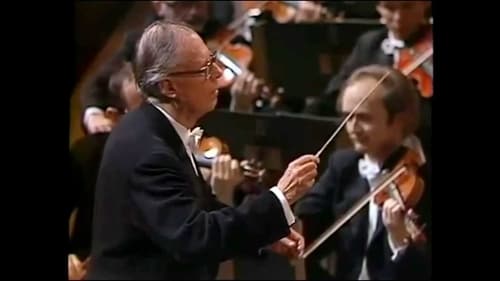
Self (archive footage)
Documentary about sixteen great conductors of the 20th century.

Self - Conductor
Live performance from Salzburger Festspiele in 1987. Herbert von Karajan conducting the Wiener Philharmoniker and Wiener Staatsopernchor. Stage director Michael Hampe. Starring Samuel Ramey and Anna Tomowa-Sintow.

Music Director
Live performance from Salzburger Festspiele in 1987. Herbert von Karajan conducting the Wiener Philharmoniker and Wiener Staatsopernchor. Stage director Michael Hampe. Starring Samuel Ramey and Anna Tomowa-Sintow.
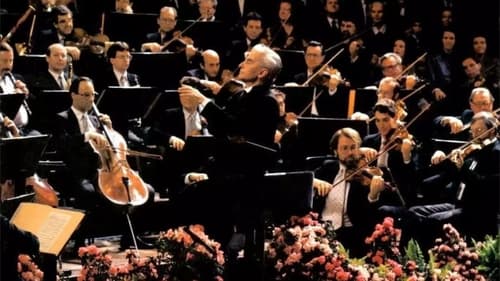
Self - Conductor

Self - Conductor
This recording of Karajan's 1987 New Year's Day Concert with the Vienna Philharmonic and the ballet of the Vienna State Opera at the Großer Musikvereinsaal in Vienna features the music of Josef Strauss and Johann Strauss, Jr. With an emphasis on the polka music of these celebrated composers, this exciting concert features acclaimed soprano diva Kathleen Battle performing "Frühlingsstimmen, Op.410", a waltz by Johann Strauss, Jr.

Director

Conductor

Self

Self - Conductor
A live performance of Giuseppe Verdi's opera.

Director
A live performance of Giuseppe Verdi's opera.

Self
World-renowned classical conductor Herber Von Karajan masterfully conducts Antonin Dvorak's "Symphony No. 8" in a live 1985 concert with the Wiener Philharmoniker. The recipient of numerous international honors and awards, Dvorak traveled extensively but remained a modest man of simple tastes, loyal to his Czech nationality.

Conductor
Conductor Herbert von Karajan spent much of his career exploring the work of Johannes Brahms and in particular his A German Requiem. This 1985 concert, representing the sum of von Karajan's study, features vocalists José van Dam and Kathleen Battle. The performance by the Vienna Philharmonic not only exemplifies the maestro's skill, but also ironically reflects his waning years in its funereal subject matter.

Self - Conductor
Under the direction of Herbert Von Karajan, the Vienna Philharmonic performs Austrian composer Antonym Dvorak's Symphony No. 9. Dvorak's work was influenced by both European and American folk music, and in his later years by African-American and American Indian music. A favorite for soundtracks, this symphony is instantly recognizable to many. The video includes liner notes and biographies of the performers.

Director
A production of Strauss' opera 'Der Rosenkavalier' performed at the Saltzburg Festival in 1984. Includes the Vienna State Opera Choir, the Philharmonic Orchestra with singers Wilma Lipp, Anna Tomowa-Sintow and Agnes Baltsa. Conducted by Herbert Von Karaja

Self - Conductor
A production of Strauss' opera 'Der Rosenkavalier' performed at the Saltzburg Festival in 1984. Includes the Vienna State Opera Choir, the Philharmonic Orchestra with singers Wilma Lipp, Anna Tomowa-Sintow and Agnes Baltsa. Conducted by Herbert Von Karaja

dirigent

Director

Self - Conductor
Premiered in 1806, Beethoven’s Violin Concerto in D Major paved the way for three great violin concertos of the 19th and 20th centuries: Brahms, Tchaikovsky, and Sibelius. Extremely expressive and astonishing in it emotional scope, the work nonetheless received an ambivalent response at its premiere. Renowned for his knowledge of Beethoven’s oeuvre, the conductor Herbert von Karajan and the Berliner Philharmoniker are joined by the virtuoso violinist Anne-Sophie Mutter for a masterful performance.

Self
The legendary Berlin Philharmonic conductor Herbert von Karajan is chronicled as he conducts two important classical pieces. Music director Von Karajan led the orchestra from 1956 until his death in 1989, creating a legacy of outstanding performances. In 1984, Von Karajan agreed to have a camera crew record a Berlin Philharmonic performance of Ludwig van Beethoven's Symphonies 1 and 8, two of the composer's finest.

Self - Conductor
This installment in the "Karajan Legacy" series captures the acclaimed conductor leading the Vienna Philharmonic Orchestra with the Vienna State Opera Chorus and the Sofia National Opera in a masterful performance of Verdi's "Requiem." Filmed in 1984, the concert features an array of renowned soloists, including tenor José Carreras, soprano Anna Tomowa-Sintow, bass-baritone José van Dam, bass Kurt Moll and mezzo-soprano Agnes Baltsa.
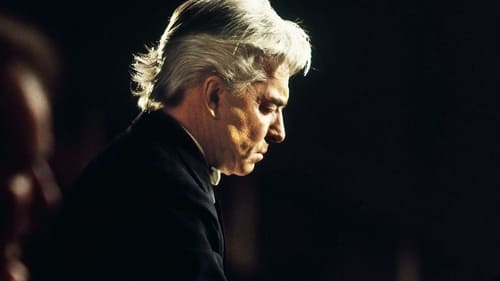
Director
Karajan conducts these symphonies with eyes closed, often intently enraptured by the music, smiling occasionally when a passage or solo sounds just right to his ear. He conducts Brahms with a greater sense of urgency than does Bernstein: the First symphony is 11 minutes shorter as conducted by Karajan! Nothing is rushed but there is what can only be described as emotional compression, an intensity of expression that sounds quicker than Bernstein's performances.

Self - Conductor
Karajan conducts these symphonies with eyes closed, often intently enraptured by the music, smiling occasionally when a passage or solo sounds just right to his ear. He conducts Brahms with a greater sense of urgency than does Bernstein: the First symphony is 11 minutes shorter as conducted by Karajan! Nothing is rushed but there is what can only be described as emotional compression, an intensity of expression that sounds quicker than Bernstein's performances.

Self
Herbert von Karajan was a master of the fine blending of acoustic colours. This quality is shown to its best advantage in this programme of masterpieces of French Impressionism. Works include Debussy’s multifaceted La Mer, and his lascivious, dream-like Prélude à l’après-midi d’un faune, and Ravel’s Suite No. 2 from Daphnis et Chloé, a work which combines shimmering transience with uncompromising energy.
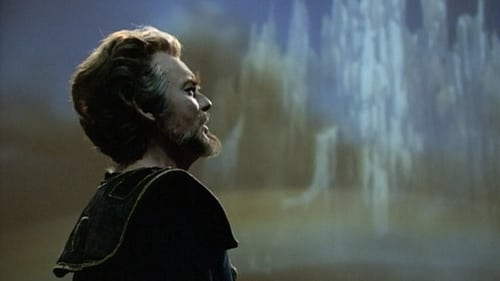
Director
This 1978 studio production of the prologue to Wagner's masterpiece is the only segment of the famous Salzburg Festival/Metropolitan Opera productions, first seen in the 1960s, that made it to film. Based on one of those original productions, Georges Wakhevitch produced stage settings and transformations that supported Karajan's concept with every possible means. Herbert Von Karajan's staging is in the epic style of another age, emphasizing the dignity of the gods rather than their all too human failings. With the singers - foremost among them Peter Schreier - Karajan had an ensemble that fully conformed to his intentions.

Self - Conductor
This 1978 studio production of the prologue to Wagner's masterpiece is the only segment of the famous Salzburg Festival/Metropolitan Opera productions, first seen in the 1960s, that made it to film. Based on one of those original productions, Georges Wakhevitch produced stage settings and transformations that supported Karajan's concept with every possible means. Herbert Von Karajan's staging is in the epic style of another age, emphasizing the dignity of the gods rather than their all too human failings. With the singers - foremost among them Peter Schreier - Karajan had an ensemble that fully conformed to his intentions.

Self
Reveals the life and current (1978) muses of Austrian conductor Herbert von Karajan.

Self - Conductor
The gypsy Azucena (Fiorenza Cossotto) takes revenge for her mother who was accused of putting a curse on one of the old Count di Luna's two sons: she decides to abduct the younger child and throw it in the flames. But when she is about to carry out this fatal act, the gypsy sacrifices her own child and keeps the old Count’s son, whom she names Manrico (IL TROVATORE, Plácido Domingo). Later, as adults, the troubadour Manrico and the Count di Luna’s elder son (Piero Cappucilli) do not know each other, but become rivals for the beautiful Leonora (Raina Kabaivanska). Manrico succeeds in winning the young woman’s heart, and she sacrifices herself for him, deceiving the Count’s son. Mad with jealousy, the latter orders the execution of the troubadour in front of his mother. Azucena reveals to him that Manrico was his brother. This legendary performance of Giuseppe Verdi's most successful opera was recorded at the Vienna State Opera under the baton of Herbert von Karajan.
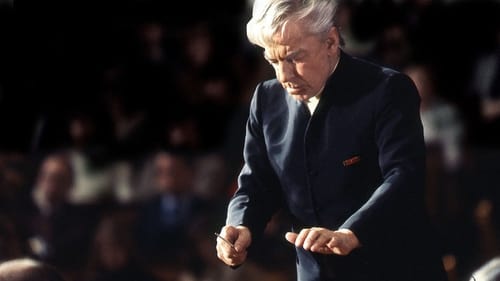
Self - Conductor
This unique document from the 1978 Salzburg Festival has fortunately been released on DVD and is a magical interpretation, prodigiously realized with a sublime fusion of timbres, a cohesion and ultimately, a simplicity that are truly unequalled. Listen as this great conductor produces musical nuisances that are unique to his art and how he accompanies the soloists with understanding and rapport. I have no hesitation in claiming this is one of the great recordings of the century.

Music
The gypsy Azucena (Fiorenza Cossotto) takes revenge for her mother who was accused of putting a curse on one of the old Count di Luna's two sons: she decides to abduct the younger child and throw it in the flames. But when she is about to carry out this fatal act, the gypsy sacrifices her own child and keeps the old Count’s son, whom she names Manrico (IL TROVATORE, Plácido Domingo). Later, as adults, the troubadour Manrico and the Count di Luna’s elder son (Piero Cappucilli) do not know each other, but become rivals for the beautiful Leonora (Raina Kabaivanska). Manrico succeeds in winning the young woman’s heart, and she sacrifices herself for him, deceiving the Count’s son. Mad with jealousy, the latter orders the execution of the troubadour in front of his mother. Azucena reveals to him that Manrico was his brother. This legendary performance of Giuseppe Verdi's most successful opera was recorded at the Vienna State Opera under the baton of Herbert von Karajan.
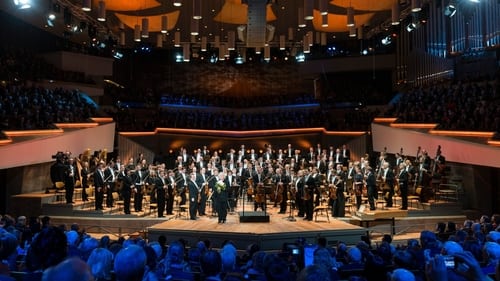
Conductor
The annual New Year’s Eve Concert is one of the highlights in the calendar of every classical music fan in Berlin and beyond. On New Year‘s Eve, the Berliner Philharmoniker invite an exceptional soloist for a festive gala. Together, the musicians bid farewell to the old year and welcome the new. The 1977 concert was conducted by Herbert von Karajan and featured Ludwig van Beethoven's Symphony No. 9 and the Chor der Deutschen Oper Berlin.

Self - Conductor
The annual New Year’s Eve Concert is one of the highlights in the calendar of every classical music fan in Berlin and beyond. On New Year‘s Eve, the Berliner Philharmoniker invite an exceptional soloist for a festive gala. Together, the musicians bid farewell to the old year and welcome the new. The 1977 concert was conducted by Herbert von Karajan and featured Ludwig van Beethoven's Symphony No. 9 and the Chor der Deutschen Oper Berlin.
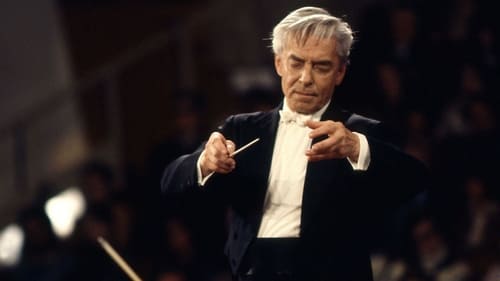
Self - Conductor
Karajan's very best video Beethoven 9th Symphony, recorded December 31, 1977. The Quartet of vocal soloists and Chorus in IV are superb. This is much better than Karajan's 1968 Berlin Philharmonic Beethoven 9 video (DG), filmed in the Philharmonie with no live audience present.

Self - Conductor
Mirella Freni, Placido Domingo, Christa Ludwig, and Robert Kerns star in this Jean-Pierre Ponnelle-directed version of the Puccini opera, with Herbert von Karajan conducting the Vienna Philharmonic. Madama Butterfly is a staple of the standard operatic repertoire for companies around the world, ranking 7th in the Operabase list of the most-performed operas worldwide.
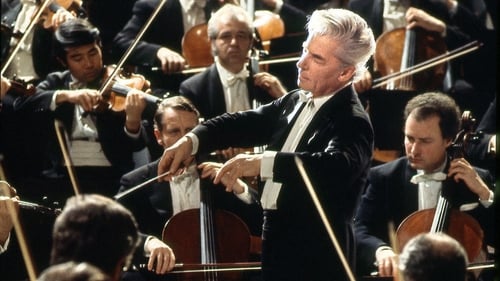
Director

Self - Conductor

Conductor
ヘルベルト・フォン・カラヤンの演出、指揮によって、73年8月にミュンヘンで上演された、ヴェルディ後期の代表作である歌劇『オテロ』を収録したファン必見作。
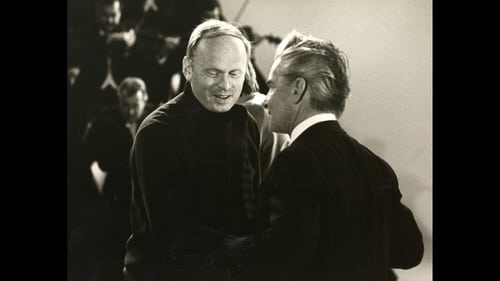
Self - Conductor

Self

Self - Conductor
Recording of the Berlin Philharmonic Orchestra conducted by Herbert von Karajan playing Beethoven's 8th Symphony.

Self - Conductor
Recording of the Berlin Philharmonic Orchestra conducted by Herbert von Karajan playing Beethoven's 7th Symphony.

Self (archive footage)
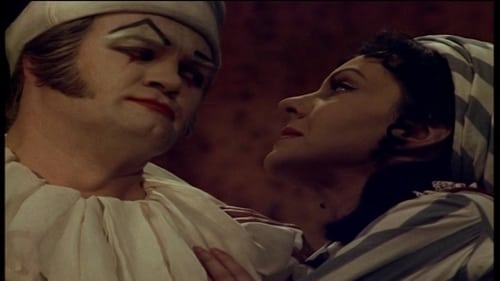
Self - Conductor
Opera's most popular double bill, fondly known as Cav and Pag, can be a tawdry mess or, as in this performance of Pagliacci, a searing experience. Its power derives from an all-star cast headed by tenor Jon Vickers in the double role of betrayed husband, Canio, and tragic clown, Pagliacci. Hes a singer who blurred the division between reality and stage illusion in every role he assumed, thus taking an opera about that thin line between real life and stage artifice to heightened levels of intensity. Vickers is a force of nature, his big, brawny voice suffused with emotion. Here, his phrasing, textual precision, and timbral colorations expand the scope of the opera, making a moving tragedy out of Leoncavallos verismo melodrama.

Director
Opera's most popular double bill, fondly known as Cav and Pag, can be a tawdry mess or, as in this performance of Pagliacci, a searing experience. Its power derives from an all-star cast headed by tenor Jon Vickers in the double role of betrayed husband, Canio, and tragic clown, Pagliacci. Hes a singer who blurred the division between reality and stage illusion in every role he assumed, thus taking an opera about that thin line between real life and stage artifice to heightened levels of intensity. Vickers is a force of nature, his big, brawny voice suffused with emotion. Here, his phrasing, textual precision, and timbral colorations expand the scope of the opera, making a moving tragedy out of Leoncavallos verismo melodrama.

Conductor
Opera's most popular double bill, fondly known as Cav and Pag, can be a tawdry mess or, as in this performance of Pagliacci, a searing experience. Its power derives from an all-star cast headed by tenor Jon Vickers in the double role of betrayed husband, Canio, and tragic clown, Pagliacci. Hes a singer who blurred the division between reality and stage illusion in every role he assumed, thus taking an opera about that thin line between real life and stage artifice to heightened levels of intensity. Vickers is a force of nature, his big, brawny voice suffused with emotion. Here, his phrasing, textual precision, and timbral colorations expand the scope of the opera, making a moving tragedy out of Leoncavallos verismo melodrama.

Music

Self - Conductor

Self - Conductor

Stage Director
This spectacular opera film was taped in 1967 and is based on the 1966 Salzburg Festival production directed by Herbert von Karajan himself, who also conducts the fabulous Vienna Philharmonic Orchestra. The production features the three greatest exponents of their respective roles at the time: Grace Bumbry’s magnificently seductive-toned Carmen, Mirella Freni’s ineffably lovely, touching Micaëla and Jon Vickers’s thrillingly manic-depressive Don José. On its release the film was hailed by Die Presse, (Vienna) as a “unique artistic event”, while Le Monde felt that Karajan’s production brought “a whole new dimension” to the opera, “combined with a magisterial interpretation”. A classical and utterly dramatic approach to probably the world's most beloved opera – Karajan’s Carmen is as much a delicacy for opera fans as it is a perfect starter for newcomers.

Conductor
This spectacular opera film was taped in 1967 and is based on the 1966 Salzburg Festival production directed by Herbert von Karajan himself, who also conducts the fabulous Vienna Philharmonic Orchestra. The production features the three greatest exponents of their respective roles at the time: Grace Bumbry’s magnificently seductive-toned Carmen, Mirella Freni’s ineffably lovely, touching Micaëla and Jon Vickers’s thrillingly manic-depressive Don José. On its release the film was hailed by Die Presse, (Vienna) as a “unique artistic event”, while Le Monde felt that Karajan’s production brought “a whole new dimension” to the opera, “combined with a magisterial interpretation”. A classical and utterly dramatic approach to probably the world's most beloved opera – Karajan’s Carmen is as much a delicacy for opera fans as it is a perfect starter for newcomers.

Self - Conductor
Herbert von Karajan conducts La Scala Orchestra and Chorus with soloists Leontyne Price, Fiorenza Cossotto, Luciano Pavarotti, and Nicolai Ghiaurov.

Director
This spectacular opera film was taped in 1967 and is based on the 1966 Salzburg Festival production directed by Herbert von Karajan himself, who also conducts the fabulous Vienna Philharmonic Orchestra. The production features the three greatest exponents of their respective roles at the time: Grace Bumbry’s magnificently seductive-toned Carmen, Mirella Freni’s ineffably lovely, touching Micaëla and Jon Vickers’s thrillingly manic-depressive Don José. On its release the film was hailed by Die Presse, (Vienna) as a “unique artistic event”, while Le Monde felt that Karajan’s production brought “a whole new dimension” to the opera, “combined with a magisterial interpretation”. A classical and utterly dramatic approach to probably the world's most beloved opera – Karajan’s Carmen is as much a delicacy for opera fans as it is a perfect starter for newcomers.

Self - Conductor
Combining the forces of two of the 20th century's greatest musicians - Yehudi Menuhin and Herbert von Karajan in their only recorded performance together - this magnificent programme marks a high point in filmed classical music, directed by master filmmaker and long-time Karajan collaborator Henri-Georges Clouzot. Herbert von Karajan conducts the Wiener Symphoniker and the Berliner Philharmoniker in performances of Mozart's Violin Concerto No. 5, and Dvorak's Symphony No. 9, filmed in 1966 by film director Henry-Georges Clouzot.

Self - Conductor

Self - Conductor
Karajan conducts rehearsal and performance of Schubert's Symphony No. 4 with the Vienna Symphony in Vienna, Nov. 1965, and Beethoven's Symphony No. 5 with the Berlin Philharmonic, January 1966. Henri-Georges Clouzot directs.

Producer
In the early 1960s two artistic giants, conductor Herbert von Karajan and director Franco Zeffirelli, joined forces to create this milestone production of Puccini’s masterpiece at Milan’s Teatro alla Scala. Filmed in that legendary opera house in 1965, with Zeffireli himself directing for the cameras, this “Bohème” has been acclaimed universally for its unique theatrical impact and visual splendour. Starring the young Mirella Freni in her carreer-making performance. – For the first time the full dimension of opera on film.

Self - Conductor
In the early 1960s two artistic giants, conductor Herbert von Karajan and director Franco Zeffirelli, joined forces to create this milestone production of Puccini’s masterpiece at Milan’s Teatro alla Scala. Filmed in that legendary opera house in 1965, with Zeffireli himself directing for the cameras, this “Bohème” has been acclaimed universally for its unique theatrical impact and visual splendour. Starring the young Mirella Freni in her carreer-making performance. – For the first time the full dimension of opera on film.

Self - Conductor
The legendary soprano Elisabeth Schwarzkopf stars in this acclaimed film of Richard Strauss' delightful opera, Der Rosenkavalier. This Salzburg Festival production of Strauss' great work toured the world, and this filmed version was hailed by The New York Times as "Superb." Schwarzkopf performs her signature role as Princess von Werdenberg, an aging beauty involved with a younger man, Octavian. But when Octavian agrees to assist Baron Ochs by delivering the Baron's proposal of marriage to the beautiful young Sophie, the messenger and bride-to-be fall in love with each other!

Self - Conductor
Austrian maestro Herbert von Karajan conducts the Berlin Philharmonic in this 1984 performance of Tchaikovsky's last completed work -- Symphony no. 6 in B minor ("Pathétique"), op. 74 -- recorded live in Vienna. One of classical music's most revered conductors -- and top-selling recording artists -- Herbert von Karajan led the acclaimed Berlin Philharmonic for 35 years until his death in 1989.























